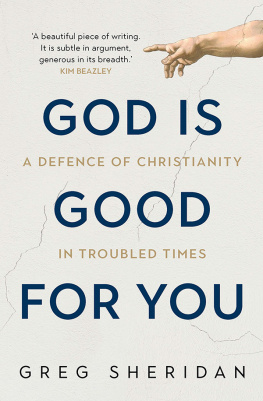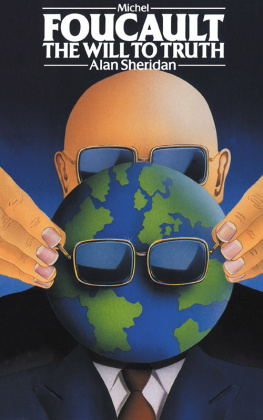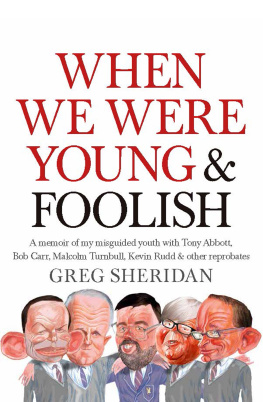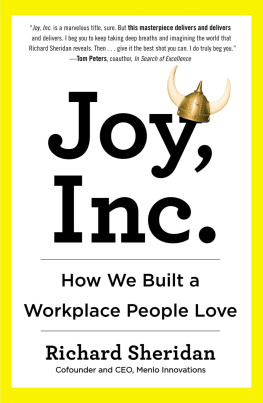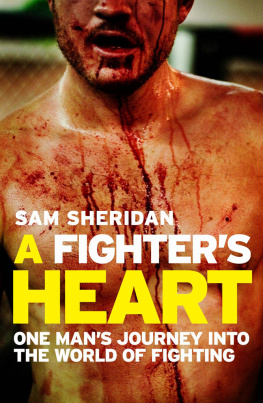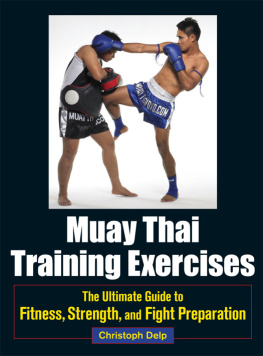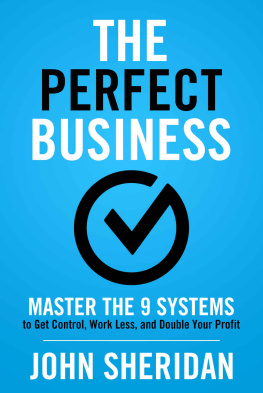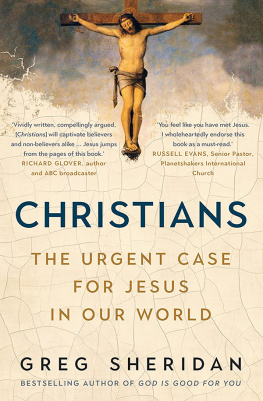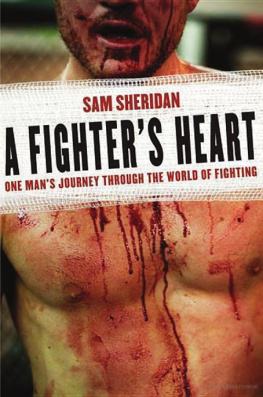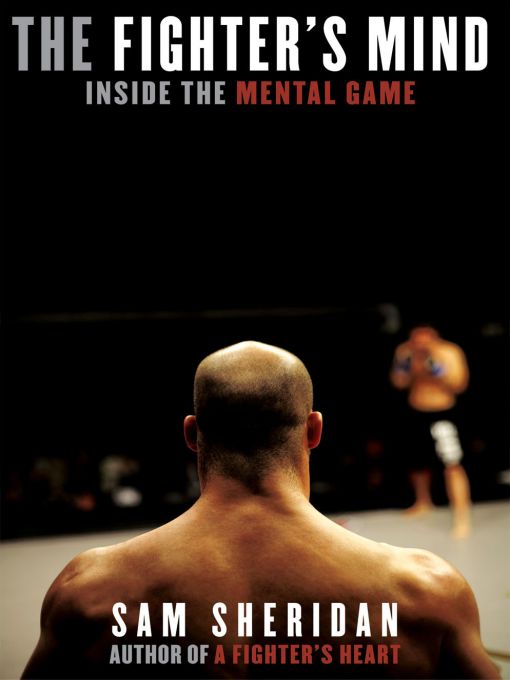
Table of Contents
Also by Sam Sheridan
A Fighters Heart: One Mans Journey Through the World of Fighting
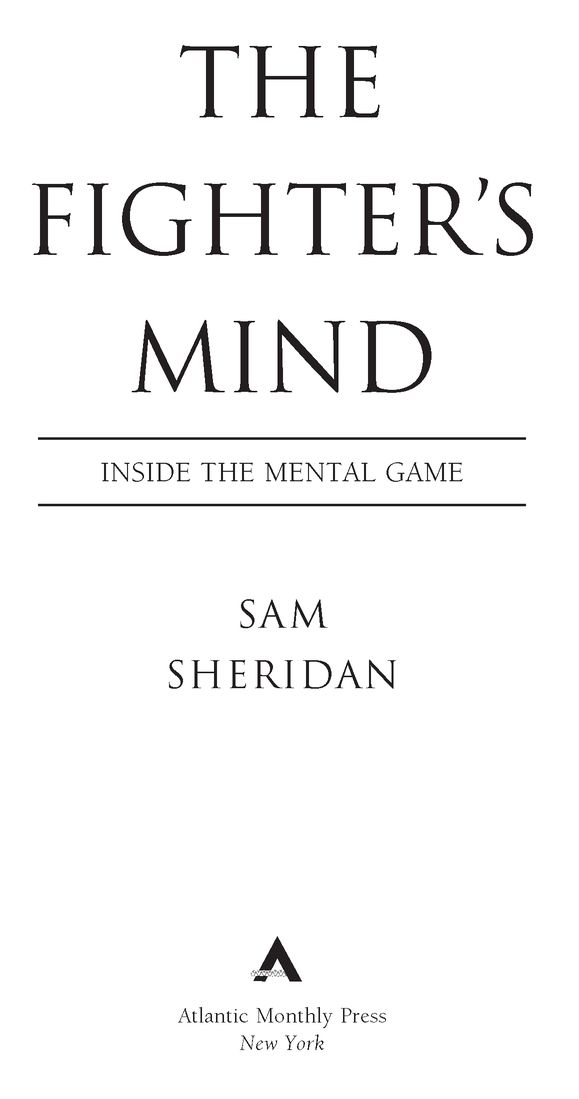
To Patty, with appreciation; and the wind, sand and stars
PREFACE
Rediscoveries are common among philosophers; the human mind
moves in a circle around its eternal problems.
A. J. Liebling
Fighting is fifty percent mental. Through the ages, grizzled fighters and veteran trainers have said words of that nature to eager young fighters, to reporters, to anyone who would listen. Tim Sylvia, a former UFC (Ultimate Fighting Championship) Heavyweight champion, said (in the finest Yogi Berra fashion), Fighting is ninety percent mental, half the time. Weve all heard it from a dozen different places.
But what do they mean? Fighting is two guys in a ring or cage, smashing each other, the ultimate physical endeavor. Its meat on meat. How could something so physical be more mental than physical? What do all these professionals intend to convey with the word mental? Is it an empty clich?
This book is an attempt to answer that question, a question that appeared simple but began to unfold into peeling layers of complexity. It started as a purely selfish quest; I was curious. After a few months of interviews and talking to great fighters I began to see the universal nature of the answers. The more you look around, the more you see that everyone is fighting something.
I made it a point to go after great fighters when I could, guys who, in the words of boxing champion Gabriel Ruelas, swum the deep waters. When Gabe said deep waters, he was talking about big title fights, championship rounds, the rarefied air where life and death are on the line. Deep waters are the moments when a great fighter is facing a superior athlete, a man who has spent his whole life honing lethal skills, in front of millions of people; when the great fighter is fighting better than he ever has before, better than anyone thought possible, and the opponent is still coming. When a mans only hope is to reach down deep into himself and find a way to snatch victory from the jaws of defeat. The fighters in this book have been tested in ways that few have. Theyve seen through the vagaries of their human soul.
I had been thinking about these things for years but the concrete book germinated during a conversation with the publisher and writer for Victory Belt: Erich Krauss. His company publishes instructional books such as BJ Penns The Book of Knowledge or Randy Coutures Wrestling for Fighting. The books are filled with diagrams and photos, step-by-step walk-throughs of specific techniques. Erich wondered if I was interested in writing one of those books.
I thought about it. Erich was talking to all the great fighters, he had tremendous access, but I wasnt so interested in the specific techniques, like Coutures clinch-trip takedowns, as much as I was his overall game-plan strategy. How come Couture was so much better than his opponents at devising plans and then executing them? Sure, the x-guard is interesting, but how does Marcelo Garcia think about jiu-jitsu? That was the book I wanted to write; these are the kinds of questions I was interested in answering.
There are those who think athletes cant speak intelligently about what they do. They see the postgame interviews, from giant men who sound like simpletons: I just go out and do what I do or I take it one game at a time or, for fighters, I just go out to kick his ass. The verbal, conscious part of the brain may be turned off when theyre performing but that doesnt mean it always is.
I knew that when you talk to fighters about their thoughts, their mental state, they can surprise you, theyve thought about it more than you might expect. You just have to learn how to listen properly (not that I was always successful) and know what youre listening to. You have to winnow through the chaff to get at the truth. But I thought it could be done, and regardless was worth a shot.
When I first thought of this project I figured this books readers would be mostly fighters, guys who compete, interested in another aspect of strategy. But I started hearing from people whod been in accidents, who found my first book inspiring, guys like Mike Tewell, who lost the use of his right arm, and then Matt Peterson, who wrote me from Maine.
I am 28 years old. 10 years ago I experienced an accident in college that left me paralyzeda C-5 quad, to be exact... Fighting has been in my blood since I can remember.
After sustaining my spinal cord injury fighting took on a new form. Naturally, I dont throw fists in the streets anymore, but the spirit of the fight that you outline in your book is still strong with me...
The sport of MMA has helped me get through more than a couple of days where I would have rather stayed in bed. There are times when going to work or classespecially around this time of year here in Maineseems like an insurmountable task, but then I remember the athletes of this sport and what they go through to get where theyre at, I take a deep breath, and then throw the covers off to get the day started.
Renzo Gracies line, Everbody is fighting something is the truth. Maybe this book could be of use to everybody, not just MMA (mixed martial arts) fighters. Matt Peterson has become a friend and was recently elected a state representative in Maine. Yes we can.
This book is mostly about fighting: boxing and mixed martial arts. They are called sports, but in sports the real world is nominally held at bay, locked outside stadium doors for the viewer. No one is starving in football, there is no genocide in baseball, no terrorism coverage on ESPN. We watch a game to escape from the news, from politics. The rules are clear, theres a winner and a loser, and everything is as fair as we can make it. Of course, sports are about everything in life, too, barely beneath the surface. Sports are about race and religion, class and poverty. Outside life squeezes in through the edges of the field and climbs in under the ropes. Terrorism and genocide show up, like smoke drifting in through the cracks.
Prizefighting is something more again. We create a life-and-death struggle on demand. And while watching my football team lose is one thing, it cant compare with the empty lurch in my stomach when I see a friend, or a hero, losing a fight.
A fight, a prizefight, has some elements of that sporting fairness and clarity, there is a winner and a loser. Rules, weight classes, referees and judges; we try to make a fair fight, as fair as human ingenuity can make it. No surprises, no advantages other than what you bring inside your business suit.
But we invite the real world inwe ask for damage. There is a savage price to be paid. Prizefighting operates in a grey area, on the dark fringes of the sporting world. The fans are a slightly different type, perhaps a little more aware of the darkness and the light, a little more accepting of good and bad. Watching men fight is like watching a bullfight or a dog-fight. On some level you stop judging and thinking and instead feel in your bones, and connect to an older, primordial sense of spectacle. Fighting is much greater than a sum of its parts; it is more than a sport, more than any other form of competition in modern society. It is about truth, and great fighters are more than just athletes. They are the reason I wrote this book, an attempt to plumb the depths, to learn something from those on the far end of experience.
Next page

